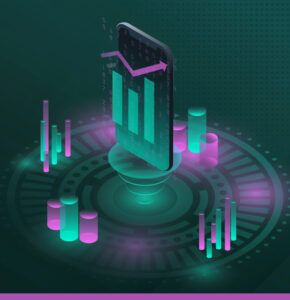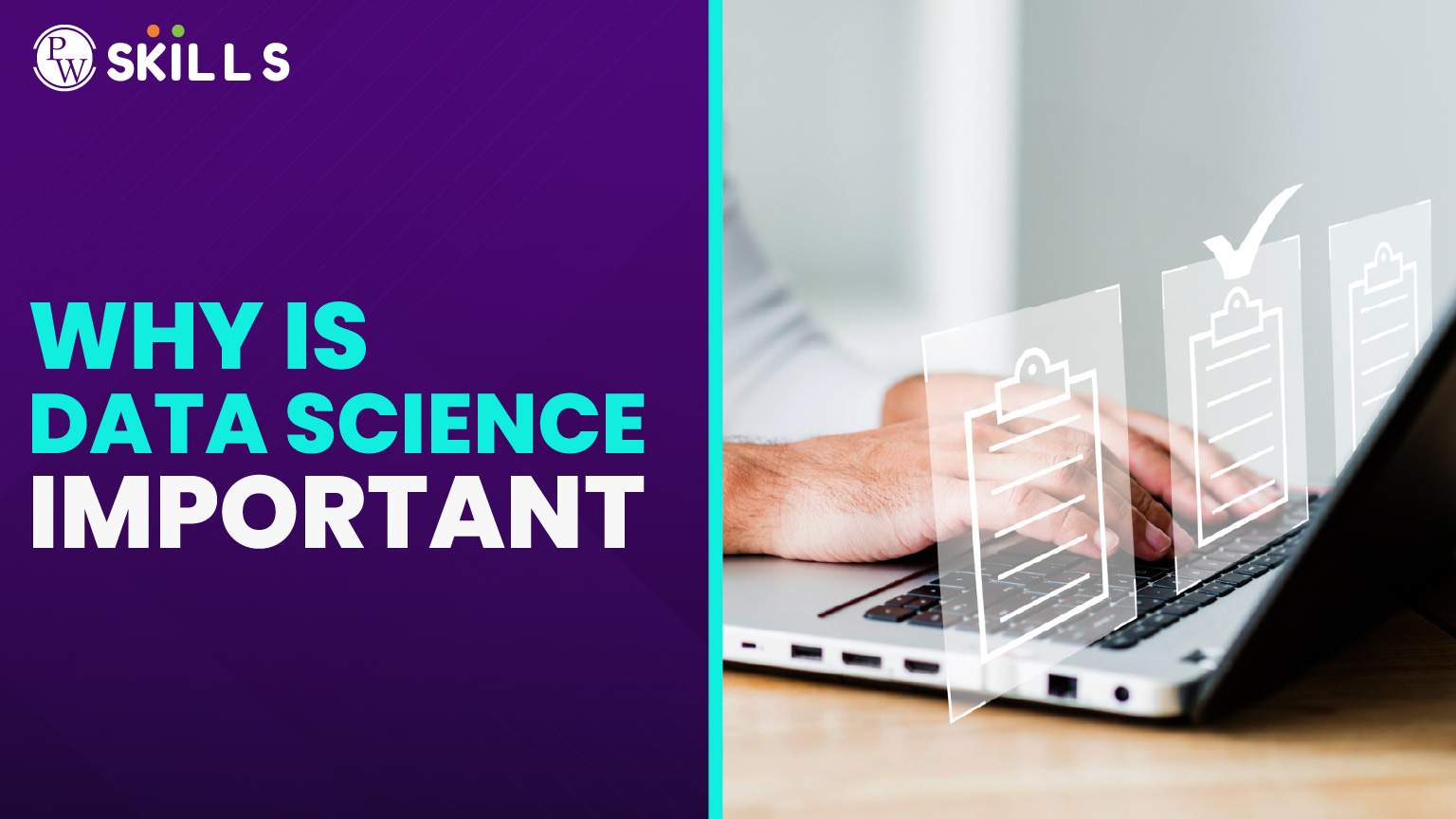What is Data Science and why is Data Science Important. Data science is a very important branch that applies scientific method, process, algorithm, and system for extracting knowledge and insight from any type of data, whether structured or unstructured in form. It acts injury in the world as the bridge between the pure, often chaotic mass of digital information and its intelligent activity in this time modern society.
Why is Data Science important has to be understood not only as an engine for evidence-based strategy, operational efficiency, and future innovation but also as an absolute necessity from what used to be seen in the most specialized niche.
Let’s dive in to know more about why is Data Science important, types of data science, why is data science important in modern information management, what is data science in simple words? And more.
Why is Data Science important?- Following the Data Pipeline
To truly know why is Data Science important, you have to realize that it’s not magic but rather a systematic process. This is a complete pipeline disciplined activities and justifies from a process point of view that Why is Data Science important ?
Types of data science journey is represented in these systematic stages:
- Data Collection and Storage: You must provide infrastructure and architecture to reliably manage capturing or storing information, often using high-capacity cloud platforms and systems for real-time IoT ingestion.
- Data Cleansing and Preprocessing: Probably the most time-consuming and basic step as far as it concerns cleaning missing values, standardizing formats, and removing anomalies from data to ensure its quality is impeccable.
- Exploratory Data Analysis: Data scientists visualize and summarize the main characteristics of the data in order to uncover initial patterns, test preliminary hypotheses, and spot hidden correlations.
- Modeling: Here lies the analytical heart of the work. You apply the machine learning algorithms—these are the various types of data science models, such as classification, regression, or clustering—to predict outcomes or segment the data effectively.
- Deployment and Monitoring: Integration with a specific application or business process should be done by integrating into its performance and continuously monitored to ensure performance remains within the limits of the accepted model.

Why is Data Science important ? – Strategic Decision Making
Data science changes fundamentally how organizations will make up their minds, moving leaders beyond guesswork and backward-looking reports. And that predictive capability is the reason why data science is very important to C suite executives and international boardrooms. This is th ekey to why is data science important to research.
The following data science models have been used to predict future opportunities through:
- Historical numbers supplemented by real-time market
- External economic forces.
With these companies can now proactively identify market opportunities, accurately assess the financial risks, and opt for the best allocation of resources even before spending the first dollar.
This strategic foresight shows precisely why is Data Science important ?
Why is Data Science important ? – Unlocking Customer Insights
If there is an aspect in which data science excels, it is in predicting customers’ behavior, which is critical in establishing solid loyalty and maximizing customers’ life value. These features obviously show advantages of why is Data Science important ?
- Granular Segmentation: Data scientists utilize digital footprints (clickstreams, purchase history, social media sentiment, and support tickets) to build very unique customer segments.
- Hyper-Personalization: This in-depth analysis allows true personalization, such as suggesting the next relevant product on an e-commerce platform.
- Predictive Churn Detection: Using machine learning models, customer churn levels can accurately be forecasted by showing which customers are likely to leave the service.
- Proactive Intervention: Companies can intervene before a permanent loss with targeted incentives or a specialized approach to save the valuable customer relationship.
- 360-Degree View: Data science makes transactions exactly what they are into a journey of lifetime experience. It enables adding comprehensive dimensions in which learning will encompass the entire customer journey.
Data Scientist’s Career: Rising Demand and How to Break Through
The title “Data Scientist” has suddenly hit the gold standard of buzz in the tech arena. It is more than just a job; this is the strategic crossroad where business, code, and mathematics come together. If you are contemplating a career pivot, an understanding of future demand for that role is paramount.
A data scientist does more than counting things; they build the engine that allows modern predictive businesses to go.
Increased Growth in Demand for Data Scientists
Why is Data Science important ? Simply put, it is the number and complexity of today’s digital universe.
By the U.S. Bureau of Labor Statistics forecasts, the number of employed persons in this field will exceed 34 percent in ten years. This growth rate is higher than the average for most occupations.
The Rise of AI and Machine Learning
Today’s businesses functions have either been fully automated or have been supported by AI, whether for providing personalized recommendations or employing sophisticated fraud detection-they all rely on the machine learning model.
The data scientist is the builder of these critical systems: design, trains, and maintain them. But as AI is learned by more people, the need for these architects only goes up.
The Long Tunnel of Increasing Specialization
The original idea of one “unicorn” Data Scientist who could do everything has faded. Companies now hire for roles such as Data Analyst, Data Engineer, or Machine Learning Engineer.
This means that the data science ecosystem is expanding to offer still more diverse opportunities for entry and driving overall demand across the entire data team.
Toolbox: Skills That Matter
What does one need to be successful in this role? It is a mix of technical strictness and a high level of fluency in communication. No matter how ecstatic one feels about it, no enthusiasm can replace core technical fundamentals.
Core Technical Foundation
You must master the foundational languages used to manipulate data. This isn’t optional; it’s the cost of entry.
- Python: This is the industry standard. Focus on libraries like Pandas for data manipulation and scikit-learn for machine learning models.
- SQL: You must be expert at querying databases. SQL is the language you use to extract and prepare data, making it arguably the most essential tool for any data professional.
- Statistics and Math: You need to understand the why behind the models. This includes a working knowledge of Hypothesis Testing, Linear Algebra, and Probability. You don’t just run an algorithm; you interpret its statistical results.
Beyond the languages, be familiar with deploying solutions using cloud platforms like AWS, Azure, or GCP. Modern data science operates at a scale never before seen; it is cloud-based.
The Soft Skills
Great data scientists never take a dip because of a bad code, but because of poor communication.
Usually, you would make great use of that ability to explain findings from complex study to non-technical leaders’ level. Simple and compelling data story, which is a business decision, would take a complex model to an easily persuasive one.
You need Business Acumen: a churn model is not worth its salt until you know what the cost of churn is to the business and how to make the output part of the workflow in the marketing department.
Roadmap into Data Science
Career Change Duration: long marathons, not sprints. It generally consumes some 12 to 24 months of serious efforts, but smart strategy does wonders.
Step 1: Capitalize on Domain Knowledge
Do not throw away your old career experience, use it as your secret weapon. If you have worked in finance, think about all the different regulations that apply to markets. If you are in marketing, think about how much you know about consumer behavior.
That is your Domain Knowledge and it is the only form of your specialization and differentiation from a pure computer scientist.
Step 2: Curate a Project-Based Portfolio
Forget the vague resume. When hiring, they want to see the code working and the analysis telling a story. Your portfolio is proof of concept.
Kicking off with public data sets found on sites such as Kaggle, but moving quickly to domain-specific projects. For example, if the goal is to work in logistics, build a model that optimizes a shipping route. If health tech is your thing, analyze public hospital data.
All code must be clean, well-documented, and hosted on GitHub.

Step 3: Find the Right Entrances
You don’t necessarily have to jump straight into the Senior Data Scientist role. Often, strategic stepping stones can fast-track your move.
Target the Analyst Role: The path that works best for most is starting with a Data Analyst or Business Intelligence (BI) Analyst position. These are juicy salary jobs, use core SQL and visualization skills, while providing critical exposure to real-world data systems of a company.
Last but not least, look inside your company for internal opportunities. The best career changes usually go through the current company. Find ways to work with the data team that exists or volunteer some inputs on leading a data-driven project within your department.
By combining a human-centric narrative with proper technical skills, while using the existing experience from one’s current profession, you will have succeeded in making a transition for one of the most exciting and prosperous fields today. This explains why is Data Science important ?
Applications of Data Science
Data science fundamentally impinges every spectrum of human endeavor. Its generality has warranted the question of the importance of the data science much beyond the technology industry. Now lets see in practical terms why is Data Science important ?
Healthcare: Data-Centered Diagnosis and Patient Outcomes
Data science has changed the medical practice paradigm and how the public health function management works.
- Powering diagnostic tools-through analysis of complex medical images and real-time identification of even the slightest abnormalities much faster than the cumbersome traditional means.
- Accelerating sequencing of the DNA. Hence, high personalization is achieved in terms of treatment plans and medicine typically designed to match the unique biology and genetics of the patient’s body.
- Prediction of disease outbreak, optimization of hospital bed occupancy, and strategic allocation of public health resources are some of the functions of data science.
Finance: Risk Mitigation and Algorithmic Trading
From independence, data science becomes an integrative backbone of security, compliance, and market stability in the financial services sector.
- There is therefore advanced artificial intelligence model that reveals such complex detection in milliseconds for fraud detection, thus safeguarding the institution and customer.
- He constructs complex modeling to approximate the assessment of the risk of credit, portfolio volatility, and the prediction of the real-time movement of markets.
- Automated, high-frequency algorithmic trading systems make huge-dollar trades daily, depending on quickly devised market data.
Retail and E-commerce: Supply Chain and Personalization
Retailers use predictive modeling to optimize their inventories across a complex, vast global network.
- More precisely, it assures that the right product is available at the right moment for retailers, reducing expensive storage and logistics costs.
- Dynamic pricing models are data science driven, changing costs based on real-time demand, taking into account competitor pricing and time of day.
- Personalization engines drive data science, leading to tailored product recommendations and targeted promotions, resulting in considerably improved conversion rates and customer satisfaction.
Manufacturing and Logistics: Predictive Maintenance and Route Optimization
- In an industrial environment of large scale, data from IoT sensors attached to equipment would be utilized in a highly efficient predictive maintenance program.
- Such failure prediction is possible with constant monitoring of the pattern of operational data such as temperature, vibration, and energy usage.
- Effective prediction of failure would result in preventive rescheduling of maintenance, which dramatically minimizes the unexpected and costly downtimes experienced on the manufacturing floor.
For example, the analysis can be applied in logistics, where data science can optimize very complex global supply chains and dynamically adjust shipping routes in real-time with respect to traffic or adverse weather. In this manner, cost savings in fuel are realized while delivery times are further shortened.
Ethical and privacy concerns
As much as data science continues to revolutionize the world, the debate should include ethical oversight of why is Data Science important ? Of prime importance is the ability to manage the consequences of ethical implications in the long-term relationships of trust built around any data-driven system,
Some of these include:
- Data Privacy Strict compliance with data protection regulations such as GDPR and CCPA is crucial, often using special techniques such as anonymization and differential privacy to protect user identity.
- Algorithmic fairness: There should be a thorough audit of the models as they may produce unintended results or magnifying human biases caught in the initial dataset.
- Transparency and Accountability: The decisions made by the model must be explainable to stakeholders, especially in sensitive applications like lending or hiring.
Future Landscape: Importance of Data Science in Future Development
Data science will prove to be one of the most important pillars in shaping future development, directly intertwined with the growth and success of every other frontier technology.
The importance of Data Science in future will revolve around some key areas:
- Generative AI and Deep Learning — These will increasingly put reliance on basic data sciences while using fundamentals for training, validation, and optimization-the better the quality of data science, the better the quality of AI.
- Advanced Data Types: Future data professionals would require a specific mastery of advanced unstructured data types-including video, audio, and complex text streams-now and in future.
- Causal Inference: This critical move from mere correlation to establishing real cause and effect will be the next frontier in sophisticated analysis.

Clearly defining the parameters that unleash the ethical complexity and technological sophistication of its powerful autonomous tools will, indeed, be the touchstone of future progress under Ethical AI Governance.
If you need a comprehensive overview of the field, you can often find a detailed importance of data science pdf online.
Launch Your High Impact Career in Data Science
Now you have answer for – why is Data Science important to research and why is data science important in modern information? There is now an high demand for Data Scientists globally, evidenced by the explosive growth of career options on offer.
The smart, high-demand skills taught in the PW Skills Data Science course– Python, Machine Learning, and deep data analysis-are a direct route towards high-paying field.
This program has been developed by industry experts focusing on job-ready skills and real-world projects to enable swift application of your knowledge toward acquiring a place in this high-growth, high-paying field. Register now and change raw data into effective business power.
Data Scientist analyzes data and builds predictive models, focusing on insight. A Data Engineer focuses on building and maintaining the robust, scalable data pipelines and infrastructure that feed the data scientist's models. In the beginning, the emphasis should be placed on classic classification problems (the sort you can find on Kaggle) with structured publicly available datasets. Pandas is the fundamental tool for data manipulation, cleaning, and analysis in Python. Communication is critical. Data scientists typically spend 30% to 50% of their time translating complex analytical results.FAQs
What is the difference between a Data Scientist and a Data Engineer?
What is the best type of project for a beginner to start building a data science portfolio?
What is the primary significance of the Python library Pandas in a data scientist's daily workflow?
How much time does an average Data Scientist spend presenting results to non-technical teams?

